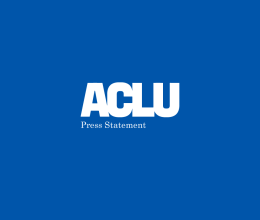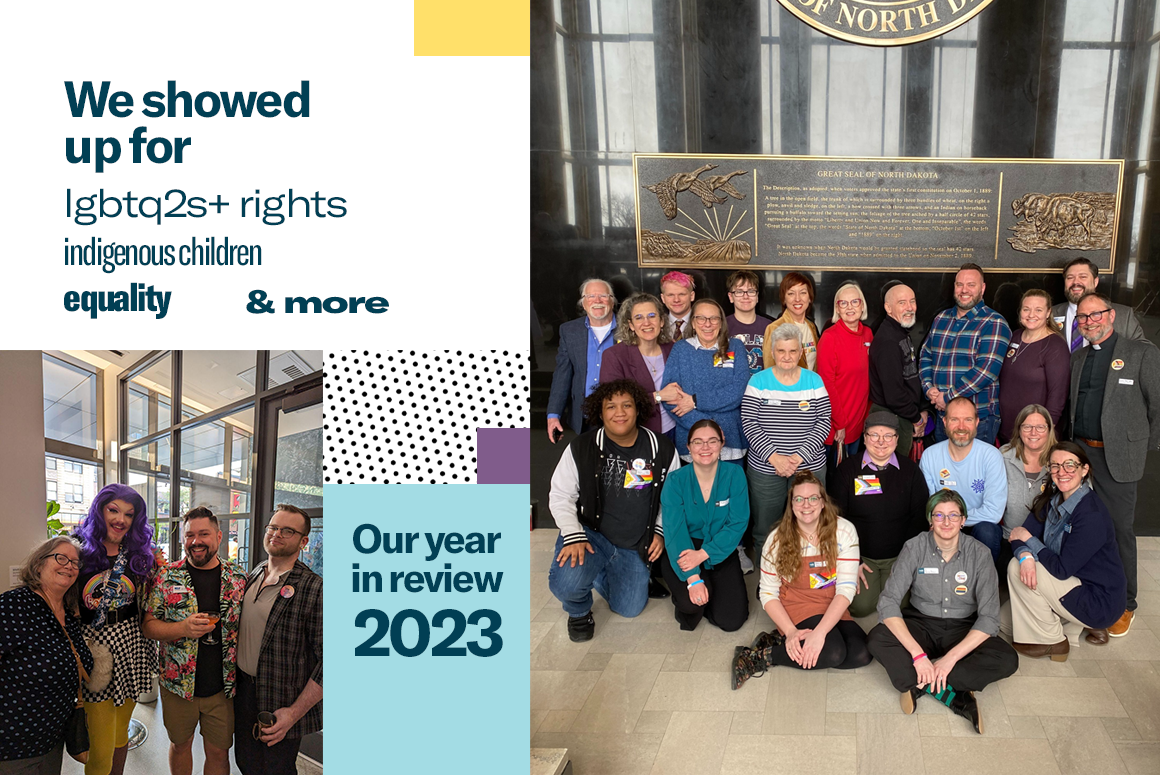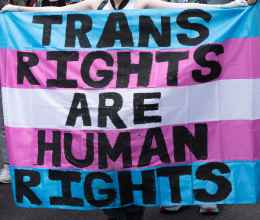
For more than 100 years, the ACLU has been showing up in the courts, in the streets, and in the halls of power to defend the rights that the Constitution guarantees to everyone.
In the past year, the ACLU of North Dakota saw both new and ongoing challenges to civil rights and liberties. But each and every time, the ACLU and our supporters showed up to fight back every step of the way.
No matter the issue, we continue to strive for a democracy that is just and equal for all. Here are some of our highlights of how we showed up in 2023.

We showed up for First Amendment rights
To be sure, no one is going to agree on the merits of every book on a library’s shelf. But who decides what is considered obscene or sexually explicit? Government officials cannot impose their personal moral values on others. Doing so violates our First Amendment rights.
That’s why the ACLU of North Dakota lobbied against Senate Bill 2360, an unconstitutional book ban bill that was a blatant attempts at censorship, pure and simple, and House Bill 1205, legislation that adds restrictions to materials offered in public libraries.
Legislators passed both bills. While Gov. Burgum vetoed Senate Bill 2360, he signed House Bill 1205.
We showed up for LGBTQ+ and Two Spirit rights
The practice of being intentional about using pronouns – and asking others about the pronouns they use – is all about respect. It ensures we’re using language that affirms the identities of everyone present, that doesn’t make assumptions about a person’s gender identity, and promotes awareness of transgender and gender nonconforming communities. It’s really quite simple and shouldn’t be controversial!
But some of our North Dakota lawmakers felt differently and proposed Senate Bill 2231, legislation that would prohibit schools from adopting inclusive policies that acknowledge the gender identity of their students. The ACLU of North Dakota opposed this bill. Creating spaces and practices that affirm people’s names and pronouns is a step toward greater inclusion.
The ACLU has long advocated for the rights of both transgender and gender nonconforming people to be who they are and to have an equal opportunity to participate fully in all aspects of our society. Because this work is largely focused on eliminating gender stereotypes, it is also deeply connected to our work advocating for women’s rights and the rights of LGBTQ+ and Two Spirit people.
Legislators passed the bill, but Gov. Burgum vetoed it. House lawmakers ultimately sustained his veto, thanks in part to advocacy from the ACLU and our supporters.
We showed up for equality
North Dakota’s workforce shortage. Affordable childcare. Education funding. Rural health care. That’s what legislators should have been focusing on in Bismarck in 2023.
Yet issues that matter most to North Dakotans didn’t seem to be a priority. Some legislators were instead focused on a slate of hate and would rather attack the LGBTQ+ and Two Spirit community and erode their rights with bills that stoke fear and hatred amid discriminatory rhetoric. In 2023, state legislatures across the country advanced a record number of bills that attack LGBTQ+ and Two Spirit rights. The ACLU is tracked 17 anti-LGBTQ bills in North Dakota.
That’s why the ACLU of North Dakota, along with Prairie Action North Dakota and North Dakota Human Rights Coalition, hosted an LGBTQ+ Lobby Day in Bismarck in March. Lobby Day participants attended committee hearings and floor sessions and met with legislators to provide LGBTQ+ and Two Spirit visibility.
We showed up for Indigenous children
Tribes have a fundamental right to govern themselves and make decisions on issues that affect their own people — including Native children — without interference from federal or state governments.
That’s why the ACLU of North Dakota supported House Bill 1536, legislation that would codify the federal Indian Child Welfare Act into state law. This was done ahead of the U.S. Supreme Court decision in Brackeen v. Haaland, a case that challenged the constitutionality of ICWA. Advocates like the ACLU said codifying the legislation into North Dakota law was important to recognize tribal sovereignty and a tribe’s inherent interest in their Indigenous children’s welfare.
The Indian Child Welfare Act (ICWA) was passed by Congress in 1978 to address the nationwide epidemic of Native children being discriminatorily removed from their homes by child welfare agencies and placed into non-native homes at disproportionate rates. ICWA requires state courts to make active efforts to keep Native families together, and it applies to children who are citizens or eligible to be citizens of a federally recognized tribe.
Legislators passed the bill and Gov. Burgum signed it into law.


